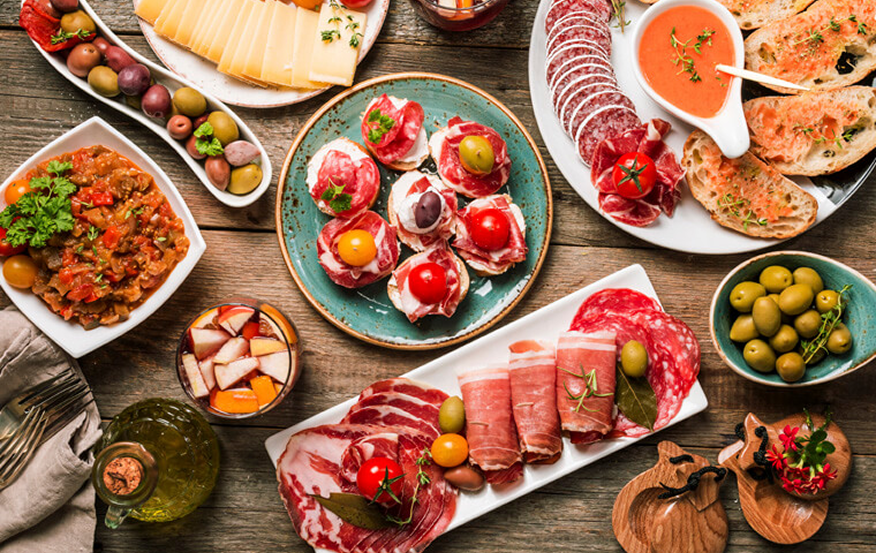The United Kingdom is a country with a rich and diverse culinary scene, blending traditional British fare with international influences. From bustling cities to quaint towns, the UK offers gastronomic experiences that appeal to every taste and budget. Cafés, restaurants, and food markets provide opportunities to explore local culture, discover innovative cuisine, and enjoy social dining. Gastronomic tours have become increasingly popular, offering visitors and locals alike the chance to sample the best flavors the country has to offer.
Advertising
1. Traditional British Cuisine
No culinary tour of the UK would be complete without sampling classic British dishes. Iconic meals such as fish and chips, roast dinners with Yorkshire pudding, and Cornish pasties are staples of the local diet. Traditional pubs serve hearty fare accompanied by locally brewed ales, offering an authentic taste of British culture.
Afternoon tea is another quintessential British experience. Served with finger sandwiches, scones, and pastries, it provides a ritualistic and social culinary experience. Cafés and tea rooms across the country offer variations on this tradition, often incorporating local ingredients and seasonal specialties.
2. Cafés: Cozy Spaces and Specialty Coffee
The café culture in the UK has flourished over the past decades, with an emphasis on specialty coffee, artisanal baking, and relaxed atmospheres. Independent cafés are found in every city and town, offering unique menus and locally sourced ingredients. These establishments often serve as social hubs, where friends meet, students study, and creative professionals work.
Specialty coffee shops have gained popularity, focusing on high-quality beans, precise brewing methods, and innovative drinks. Many cafés also provide vegan and gluten-free options, catering to diverse dietary preferences and emphasizing sustainability.
3. Modern and International Cuisine
The UK’s gastronomic landscape is not limited to traditional dishes. Cities such as London, Manchester, Edinburgh, and Bristol are home to a wide array of international cuisine, reflecting the multicultural population of the country. Restaurants serving Italian, French, Japanese, Indian, Middle Eastern, and African dishes offer authentic flavors and innovative culinary interpretations.
Modern British cuisine blends tradition with contemporary techniques, emphasizing fresh, locally sourced ingredients. Chefs experiment with fusion dishes, seasonal menus, and farm-to-table concepts, creating vibrant dining experiences that appeal to both locals and tourists.
4. Gastro-Pubs and Fine Dining
Gastro-pubs combine the warmth and social atmosphere of traditional pubs with elevated cuisine. These establishments offer creative dishes, often incorporating regional ingredients and seasonal flavors. They provide a casual yet sophisticated experience, bridging the gap between comfort food and haute cuisine.
Fine dining restaurants in the UK have earned international acclaim, with several establishments holding Michelin stars. These venues focus on presentation, innovation, and culinary excellence, offering tasting menus that highlight the chef’s artistry. Gastronomic tours often include visits to both casual and fine dining settings, allowing participants to appreciate the full spectrum of British cuisine.
5. Street Food and Food Markets
Street food and markets are integral to the UK’s culinary identity, offering dynamic and accessible ways to explore local flavors. Markets like Borough Market in London, St Nicholas Market in Bristol, and Grassmarket in Edinburgh feature a wide variety of stalls, from artisanal cheeses and cured meats to international specialties and vegan creations.
Food markets encourage exploration, providing a sensory experience with vibrant colors, enticing aromas, and interactive cooking demonstrations. They also support local producers and small businesses, reflecting the growing emphasis on sustainability and community-driven gastronomy.
